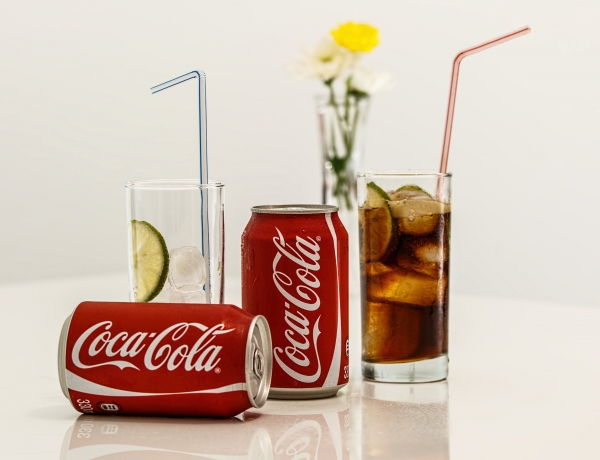
With the “zero sugar” trend in the beverage industry gathering attention of the younger generation interested in health management and healthy diets, controversy over increased consumption of substitutes used in drinks have appeared.
According to statistics provided by Euromonitor International, the South Korean zero sugar soda market reached a scale of 218.9 billion won as of 2022. This is 2.4 times greater than the 90.3 billion won market back in 2016, and it is still growing rapidly in 2023.
Lotte Chilsung Beverage Co., Ltd., one of the largest beverage manufacturing and sales companies dominating the South Korean zero sugar beverage industry, achieved an 85.1 billion won sales of zero sugar drinks in the first half of 2022, which have doubled compared to 2021.
Along with the sales of Pepsi Zero Sugar, Lotte Chilsung began producing the zero sugar version of its leading Chilsung Cider. With its great success, the company launched its new Tams Zero line in March 2022, a zero sugar version of its energy drink HOT6ix in May 2022, followed by the zero sugar version of the company’s signature milk soda, Milkis, in early 2023.
To look into the actual consumption rate and attention on zero sugar beverages, Ewha Voice conducted a survey of 98 students from May 8 to 14, where all respondents expressed that they had consumed any kind of zero sugar beverage more than once.
85.7 percent responding that they choose the zero sugar type over the original when they were given a choice between two versions of the same drink. Some reasons to the decision included health, as many did not notice any difference in taste between the two versions.
Professor Oran Kwon from the Department of Nutritional Science & Food Management shared her thoughts on the trend of zero sugar beverages, based on her 18 years of experience working for the Ministry of Food and Drug Safety (MFDS).
Kwon described that the amount of food consumption vastly increased due to the improvement of living standards. The idea of unhealthy “excessive intake” started to dominate, with nutrients including sugar, fat, and salt being the main culprits.
“As excessive intake of sugar has become an alarming issue, beverage companies have started to produce ‘zero’ drinks as an opposing term to ‘excess,’” Kwon said. “However, it is important to examine whether the expression ‘zero’ is used to reassure consumers, or can be explained in actual scientific terms. Unfortunately, it is the former in most cases, skillfully avoiding the standards of the MFDS.”
Kwon explained that various substitutes are used to solve the problem of high calories while maintaining the sweet taste of sugar. Some significant types of sugar substitutes are artificial sweeteners including Saccharine, oligosaccharides, and sugar alcohols such as Sorbitol and Xylitol.
Although each substitute has its downside, as these dangers are unlikely to occur, artificial sweeteners and sugar alcohols, along with the artificialnon-saccharide sweetener Aspartame and monosaccharide Arabinose, are used in zero sugar beverages.
“The positive effect of the zero sugar trend may have helped decrease the consumption of sugar, which is especially healthy for teenagers that are under the danger of obesity,” Kwon explained.
However, Kwon also showed concerns towards the implications of zero sugar expanding excessively. With the recent introduction of zero sugar soju, the increased consumption of unhealthy products regardless of sugar is a major concern.
“It is important to check the nutritional content table for a healthy diet, especially in terms of sugar, as it can also affect blood sugar management in later stages of life,” she said. “For those who are particularly interested, considering the glycemic index to look for foods that are slow in affecting glucose levels may also be a good idea.”
Professor Ahjeong Son from Environmental Science and Engineering also shared her thoughts on the issue of artificial sweeteners. Son, with experience in both microbiology and chemistry, expressed her interest in the issue of processed food, and has even brought the topic into her liberal arts course to teach students about the danger of processed foods and artificial sweeteners.
According to Son, artificial sweeteners intend to substitute sugars but without its calories, simply tricking the brain into thinking that they are sweet. However, as a scientist and engineer, Son believes that “tricking biology” for any system may have some temporary benefit, but will never end well.
“Although many people want to eat sweets without gaining weight or risking diabetes, like everything else in life, these is no free ride,” Son said. “There is always a price, whether we are aware of it or not. As consumers, we always have to ask ourselves —‘do we want to consume something that is controversial?’”
As a consumer, Son does not recommend consuming anything artificial, whether it is a sweetener, coloring, or preservative.
“We should exercise common sense with regards to our own conditions,” Son emphasized. “Observe, study, think, and repeat. Hopefully, everyonewill be able to find their own answers for their own healthy lifestyles.”

